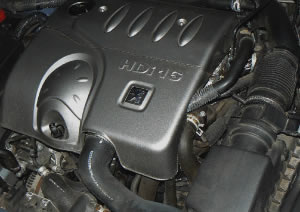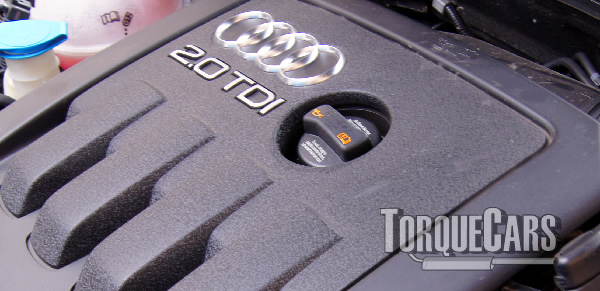Remapping a turbo diesel engine.
"More power, more economy it sounds too good to be true."

Our members frequently talk about their latest mods and power figures.
Many of our members have remapped their diesel engines and boast of more power, better economy and unchanged reliability.
But do the claims live up to reality? What sort of power figures can you get from a diesel remap? Is it possible to get more power and better fuel economy?
Diesels have really come so far in a very short time. Back in the 1980's they were associated with being noisy, smelly and smoky. Now the Turbo diesel engine is a refined beast and offers massive amounts of torque.
As engine technology has improved, the diesel revolution has begun. As soon as manufacturers started adding turbos to their engines we started to see massive power figures.
To further rub salt into the Petrol owners wounds the legendary diesel fuel economy has remained or in many cases improves.
The average power gains from a remap on a diesel engine are in the order of 30% more power. The costs vary from provider to provider but you are looking at between £200 and £500 (around us$400.
How do remaps work? The engine is controlled by computer. The computer determines how much fuel and air to push into the engine and controls the turbo and fuelling to control this. Manufacturers need to make their cars reliable and meet the stringent emissions regulations. It is fair to say that there is a great deal of variation from one engine to the next so a general compromise is made when the computer is programmed. This compromise allows the car to run smoothly if it has been neglected or has sub standard components through everyday wear and tear.
A remap will change the computer settings and maximise the power made by the engine. In its simplest form it will raise the "safety" limits and force more fuel/air into the engine and alter the turbo spool up rates to give the maximum power gains.
Many tuners will ramp up the fuel rail pressure earlier in the RPM range but still keep peak pressure within the factory defined maximum limits giving a good mid range power boost and improving the pick up under acceleration.
Regarding fuelling, they do also play with the injection timing, which is crucial on all diesel engines. All common rail systems use at least 2 injection phases, a pilot phase to get the fire going and a primary phase which provides the vast majority of the power. It's the pilot phase which gets rid of the characteristic DI diesel rattle and knock.
CR diesels do respond very well to remapping, I think many car makers have purposely detuned their diesel engines simply to leave some room in the market for petrol models. During the early part of the 21st Century (first 5-6 years, say) diesel received loads of R&D cash, whilst petrol engines barely evolved at all in that time. Things are back on a more even keel now and we're seeing more and more DI petrol units and some very innovative turbocharging technologies being applied.
What are the drawbacks of remapping your diesel engine? Generally there are no drawbacks if your car is in good condition.
We would advise shorter service intervals and it is fair to say that any weak parts will generally fail sooner. There have been reports of clutches failing due to the extra torque but in fairness these are usually old worn clutches anyway.

So what are the benefits? You will get more Torque and the engine will rev more freely although still not as high as its petrol counterpart. As the ignition timing is advanced you will usually get a more efficient burn and this will mean more economy although most remapped diesel driver will use the extra power on offer and have a heavy right foot.
Can all diesels be remapped? In short no, you can only remap the later diesel engines. From around 2001 the computer interfaces were standardised and allow the uploading of a remap through the diagnostic port. Some remaps are available in the form of a replacement chip and there are various piggy back devices offered where a true remap is not possible.
It is not worth remapping a naturally aspirated (non turbo) diesel engine. The power gains are not worth the expense. However if you are driving a turbo diesel that accepts a remap then you will probably see power gains of 30% or more.
There are two types of remap open to you.
- The first is an off the shelf remap. These will be a best compromise, much like the one the manufacturer offers but still offering good power gains.
- The second type is the custom remap. This is where a map is devised and tailor made to suit your car.
The car will usually be mapped on a rolling road or taken for a series of test drives with a data logger running so the optimum settings can be reached. A custom remap will also take into account any other modifications you have done such as fuelling increases, sports air filters and the uprating of the intercooler. A professional remap specialist will be able to offer a map to your specification. For example some drivers ask for better economy under 3000 rpm and want the power band between 3 and 4000rpm.
TorqueCars recommend a full custom remap, especially if you have done any other modifications. The off the shelf remap is the best option if your car has a high mileage or you have not done any other modifications. Many modern engines will adjust or trim their settings to account for poor quality fuel or your driving style.
Make sure your brakes are in good condition and that your clutch is in good condition. If the clutch starts to slip then it may be time to consider a slightly better quality clutch.
Always notify your insurers if you get your car remapped otherwise you may find yourself without cover in the event of an accident. Thankfully many major insurers are sympathetic to remapped diesels and offer reasonable terms see our modified car insurance article for more information on this.
Please Check out my YouTube channel, we're regularly adding new content...
PLEASE HELP: I NEED YOUR DONATIONS TO COVER THE COSTS OF RUNNING THIS SITE AND KEEP IT RUNNING. I do not charge you to access this website and it saves most TorqueCars readers $100's each year - but we are NON PROFIT and not even covering our costs. To keep us running PLEASE Donate here
If you liked this page please share it with your friends, drop a link to it in your favourite forum or use the bookmarking options to save it to your social media profile.
Feedback - What do You Think?
Please use our forums if you wish to ask a tuning question, and please note we do not sell parts or services, we are just an online magazine.
Help us improve, leave a suggestion or tip
Please watch this video and subscribe to my YouTube channel.

 Click to accept YouTube Cookies & Play.
Click to accept YouTube Cookies & Play.